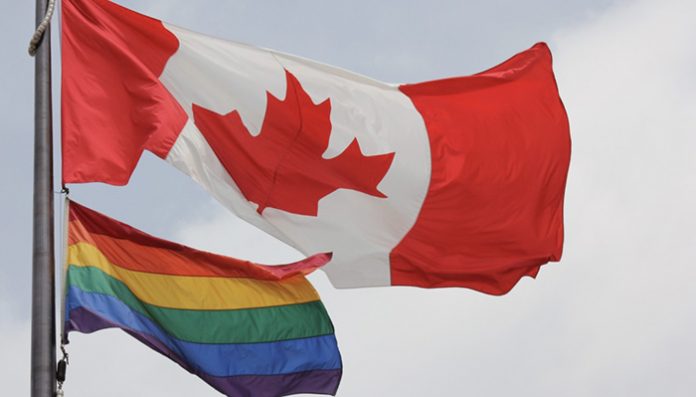Many factors can contribute to smoking and tobacco use, including discrimination, inequalities and higher rates of violence related to sexual orientation, gender identity and gender expression.
During National Non-Smoking Week, the Honourable Patty Hajdu, Minister of Health, announced an investment of up to $2,840,767 to support the University of Toronto’s All Together Now! project. The University is developing a social marketing and smoking cessation initiative in collaboration with the Canadian Cancer Society, Egale Canada and members of LGBTQI2S+ communities. This project will focus on helping members of LGBTQI2S+ communities quit smoking and lead healthier lives. The project aims to support an estimated 114,000 members of LGBTQI2S+ communities in Toronto and Thunder Bay, Ontario, as well as in Montréal, Quebec.
All Together Now! aims to address the higher rates of tobacco use among members of LGBTQI2S+ communities through a combination of targeting social media messaging, working with local champions and social influencers, developing online resources, and participating in local events within LGBTQI2S+ communities. The project will also offer tobacco cessation programming along with resources and supports to respond to some of the challenges that can contribute to smoking. For example, free nicotine replacement therapy will be available to address possible income inequalities and social media will be used to address social factors that lead to smoking such as stigma and social inclusion.
In addition to this funding, as part of Health Canada’s Substance Use and Addictions Program, the Government of Canada is also providing approximately $1.3 million over 36 months to the University of Toronto’s Ontario Tobacco Research Unit to develop and implement interventions for youth and young adults (aged 16 to 29) vaping cessation. This investment aligns with the objectives of Canada’s Tobacco Strategy, which aims to reduce tobacco use to less than 5% by 2035. This target is supported by a federal investment of $330 million over five years to help Canadians quit smoking and to continue to protect young people and non-smokers from nicotine addiction.
“This week marks National Non-Smoking Week in Canada, and I want to encourage the thousands of Canadians who will take their first steps toward quitting smoking. The projects we are supporting today like Toronto’s All Together Now! will better help them as they make this positive change in their lives – and encourage others to follow in the same footsteps.” Said The Honourable Patty Hajdu- Minister of Health
“Smoking in LGBTQI2S+ communities is associated with stigma and related stress experienced by many individuals.
Working from within LGBTQI2S+ communities, All Together Now! will build strong interventions to change the social climate for smoking and provide tailored quit-smoking support. We are grateful to the Government of Canada for making this vital work possible.” Contributed professor Robert Schwartz- Dalla Lana School of Public Health, University of Toronto.
Quick Facts
- One Canadian dies from a smoking-related illness every 12 minutes, which represents about 45,000 Canadians per year.
- Among LGBTQI2S+ young adults, tobacco usage is higher: 35% of young adults aged 18 to 24 smoke, compared to 23% of heterosexual individuals in the same age group in Canada.
- The All Together Now! project is being funded through the Public Health Agency of Canada’s Multi-sectoral Partnership Approach. Since 2013, this program has invested $141 million and leveraged more than $111 million to support interventions that encourage behaviour change and positively impact the health of Canadians.
- Health Canada’s Substance Use and Addictions Program is a federal grants and contributions program that provides financial support to provinces, territories, non-governmental organizations, Indigenous organizations, key stakeholders and individuals to strengthen responses to drug and substance use issues in Canada.








